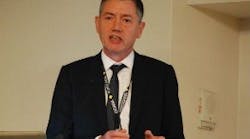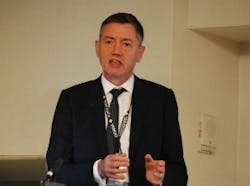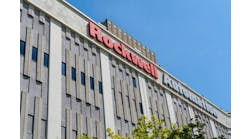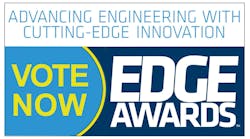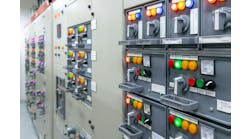“We can define the problems and apply the proper technologies. None of our competitors can do that this this degree.” Yokogawa’s Simon Rogers explained how the company’s modelling expertise and implementation technology make for an unrivaled combination.
Increasing operational excellence.
That’s the goal of all of these efforts, right? And that’s the promise of digital transformation, to enable agile, flexible and synchronized systems; to prompt safe, secure and clean operations; and—somewhere down the line—to realize completely autonomous facilities.
“We’re talking about plants that are not operated at all…running entirely on their own,” explained Simon Rogers, vice president of Yokogawa’s advanced solutions business, during a session focused on Yokogawa’s OpreX business and process automation solutions at the Yokogawa Users Conference this week in Orlando.
OpreX is based on interrelated performance indicators distilled from Yokogawa's domain knowledge, promoting profitability by balancing conflicting objectives, Simon said. It incorporates a new performance dashboard and services designed for operations, as well as programs provided by KBC Advanced Technologies, a Yokogawa subsidiary specializing in consulting and simulation for process management. The solution, launched earlier this year, was initially optimized for oil refining and petrochemicals, with planned expansion for application to LNG and basic chemical plants.
Rogers summarized OpreX as “our take on digital transformation to enable operational excellence, from instrumentation to systems to advanced solutions.”
If that sounds comprehensive to you, it is.
OpreX employs three fashionable Industrial IoT technologies—big data, cloud computing, and artificial intelligence/machine learning. Rogers expects the excitement enabled by those technologies in the larger culture (from voice-recognition to driverless cars) to fully port over into process industries, ushering in new agility within plants, optimized supply chains and unprecedented levels of automation. “The financial benefits, the safety gains and the impact on sustainability are dramatic,” he said, citing a joint study by the World Economic Forum and Accenture noting potential value addition for the industry of $800 billion and a 22% reduction in accidents and injuries, alongside huge environmental gains.
OpreX also represents a new approach to process optimization, joining asset-performance management (in which the client determines the policies they will use for regulation) with continuous-process management (which can employ modern approaches such as a molecularly enabled digital twin) with operational-risk management.
In developing the OpreX solution, Yokogawa partnered with key enterprises—Chevron for the supply-chain optimization component, Shell for asset optimization, Baker-Hughes (GE) for asset management and Mitsui Chemicals for operations management.
Domain expertise differentiates
Challenges exist, naturally, in the form of sub-optimal business process that limit automation, murky ROIs, poor system integration and uncoordinated strategies. But optimism is high; confidence abounded in the room. “The key differentiator with this solution is our deep domain knowledge of the process industry, particularly with hydrocarbons,” explained Rogers. “Yokogawa has the model to enable operational excellence and the technology to automate those business processes. We can define the problems and apply the proper technologies. None of our competitors can do that this this degree.”
Echoing many other presenters on this opening day of the company’s Users Conference, Rogers stressed that enhanced business processes are not enough—culture within the businesses that adopt this approach must be game for the change. “Culture is key—making sure they understand this and actually implement it. Properly defining business processes and ensuring that organizations follow them. Maintaining agility within the operation. This is a never-ending journey.”
He then provided an overview of Yokogawa’s process for implementing OpreX, a structured approach that begins with defining market factors and assessing status before developing the strategic intent. Next is a gap analysis to uncover opportunities, risks and quick wins. Custom approaches are developed to enable automating best practices. Then Yokogawa tasks itself with deploying the tech, delivering opportunities and then sustaining performance. (There’s that never-ending component.)
Rogers is clearly excited about this new approach to process optimization, particularly expanding control capabilities using combinations of online, non-linear models and implementing holistic digital strategies that exploit all of the capabilities of emerging technologies. New uses for new tools means new wins.
“This vision looks at the big picture, but we start small and scale quickly,” he surmised. “This is a part of our Synaptic Business Automation. We study the technology itself, the work processes and the people. We have the capability to help in all three areas.”
